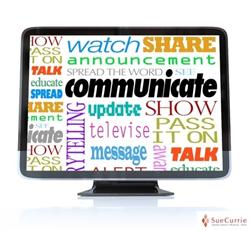 Not all publicity is good publicity. Just look at the recent sacking of Jeremy Clarkson host of the top-rating TV show Top Gear. For someone who seemed to relish the spotlight, I’m sure he would prefer to be out of it at the moment. His very publicly covered antics were his undoing. Publicity can be very beneficial to a brand whether personal or business but it needs to be managed well. Many famous people have publicists working with them to manage their many media inquiries, but of course they can’t always control the message that comes through often because of the star’s behavior. For lesser known brands and businesses you can manage your own publicity. So – What is Publicity?
Not all publicity is good publicity. Just look at the recent sacking of Jeremy Clarkson host of the top-rating TV show Top Gear. For someone who seemed to relish the spotlight, I’m sure he would prefer to be out of it at the moment. His very publicly covered antics were his undoing. Publicity can be very beneficial to a brand whether personal or business but it needs to be managed well. Many famous people have publicists working with them to manage their many media inquiries, but of course they can’t always control the message that comes through often because of the star’s behavior. For lesser known brands and businesses you can manage your own publicity. So – What is Publicity?
To “get good PR” is a common view of public relations as only being publicity. Put simply publicity is making a suggestion to a journalist that leads to the inclusion of a company, person or product in a story. Newspapers, magazines, online publications, TV programs and radio shows have large amounts of space to fill and depend upon publicists to help provide story ideas, interview subjects, background information and other material. But that doesn’t mean to say you approach every journalist there is and suggest yourself or your business as a possible story idea.
You need to know the stories they want to cover whether it’s a business news story or a “feel good” piece for a weekend magazine. Do your research; find out the most appropriate publications or TV or radio programs for your information. Put yourself in the position of the editor and ask yourself, "Is this something my readers are interested in?" People who read Financial Review are not the same people who read That’s Life. You need to give the journalist a story idea. Think of yourself as an editor coming up with ideas to fill space. Help the journalist do their work.
Publicists, PR agencies and journalists need to work together and develop good working relationships so that everybody achieves the desired result. But of course a good result would not exist without a good story.
In my free eBook the Power of Personal Public Relations I write more about being your own publicist. Download your copy here.
Sue Currie is a personal branding specialist and director of Sue Currie Communications an agency providing an integrated strategy of personal and professional public relations solutions to help business owners boost their image, renown,brand and business. Through speaking, corporate workshops and consulting, Sue helps organisations and individuals to stand out and shine.



